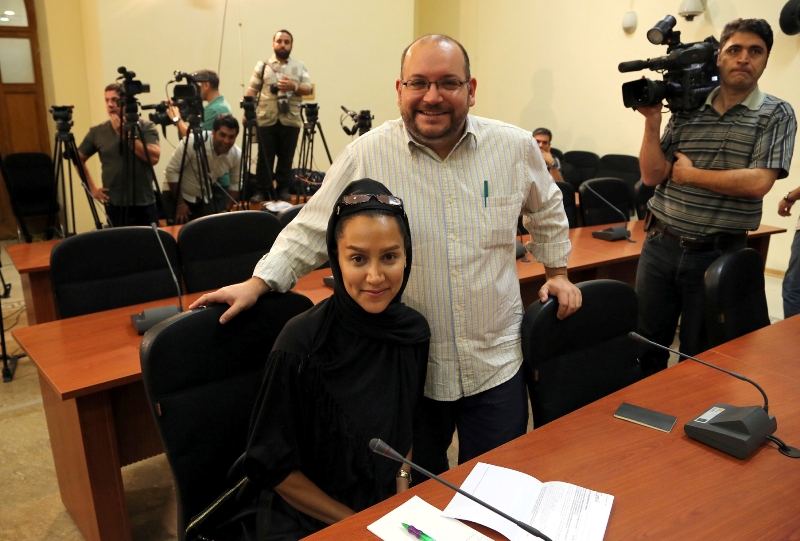The International Press Institute (IPI) today condemned an Iranian court decision convicting Washington Post journalist Jason Rezaian, who holds dual U.S.-Iranian nationality, and called for his immediate release.
A spokesperson for the Iranian judiciary, Gholam Hossein Mohseni Ejehi, appeared on state TV late Sunday night to announce that the Tehran Revolutionary Court had convicted Rezaian. However, the details of the verdict and whether Rezaian was in fact sentenced are still not clear.
Rezaian, the Washington Post’s Tehran bureau chief, was arrested along with his wife and two other journalists on July 22, 2014 when Iranian authorities raided his home in Tehran. While the others were released, Rezaian was taken to Iran’s notorious Evin Prison.
“This trial, in which Jason Rezaian apparently has been convicted of engaging in journalism, makes a mockery of legal proceedings,” IPI Director of Advocacy and Communications Steven M. Ellis said. “The allegations against him are patently absurd and this case, which has seen him behind bars for almost 450 days now, should never have been brought. We urge members of the international community to reject this farce and to join in demands for his immediate release.”
For over a year, supporters say, the journalist was illegally held on charges including espionage. However, Rezaian’s attorney, Leila Ahsa, has told media outlets that he was also accused of “conducting propaganda against the establishment”, ”collaborating with hostile governments” and “collecting information about internal and foreign policy and providing them to individuals with malicious intent”.
Rezaian’s incarceration is believed to be the country’s longest imprisonment of a Western journalist since Iran’s 1979 revolution. His closed-door trial began end of May 2015 and the final hearing took place on Aug. 10 with no clear announcement on when a verdict would be issued.
The U.S. government, international organisations and press freedom advocates around the world have criticised the journalist’s unlawful detention, the closed-door trials, limits on his access to legal assistance and the reportedly poor treatment he has received in prison.
Marty Baron, executive editor of the Washington Post, in a statement yesterday labelled the mysterious verdict “an outrageous injustice” and “contemptible”.
“This vague and puzzling statement by the government of Iran only adds to the injustice that has surrounded Jason’s case since his arrest 15 months ago,” Baron said. “The only thing that has ever been clear about this case is Jason’s innocence. If a ruling has been issued and is now being reviewed, this puts the onus on Iran’s senior leaders to demonstrate the fairness and justice that could only lead to Jason’s exoneration and release.”
Ali Rezaian, the journalist’s brother, said that the decision was disappointing but not surprising. He added: “It follows an unconscionable pattern by Iranian authorities of silence, obfuscation, delay and a total lack of adherence to international law, as well as Iranian law. The Iranian government has never provided any proof of the trumped up espionage and other charges against Jason.”
Although Ejehi told news media that Rezaian is eligible to appeal the conviction within 20 days, there are doubts whether this would have any effect on the final outcome of the proceedings in light of the unclear and secretive style of his imprisonment. It also remains unknown what sentence Rezaian was given, although he reportedly faced 10 to 20 years in prison if convicted.
News media outlets reported today that Iranian leaders have suggested that Rezaian could be released in a prisoner swap for Iranians currently being held by or at the request of the United States for allegedly violating international economic sanctions against Iran.
